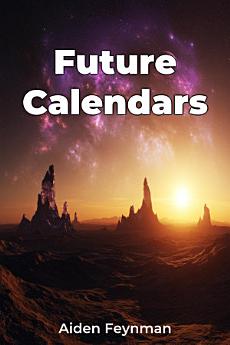Future Calendars
Über dieses E-Book
The book progresses by first examining the limitations of current timekeeping in space, considering planetary differences and the challenges of synchronizing missions across vast distances. It then investigates how AI might perceive time, exploring event-based time metrics. Finally, it speculates on the potential timekeeping needs of extraterrestrial life. This approach provides a comprehensive overview of the scientific, technological, and philosophical considerations necessary for creating future timekeeping systems.
Future Calendars adopts a pragmatic and forward-looking perspective, presenting information in a clear and accessible style for a broad audience interested in science and technology. It analyzes existing proposals for alternative timekeeping systems, considering findings from astrobiology and theoretical physics. By connecting to interdisciplinary fields like physics, computer science, and philosophy, the book offers a holistic approach to understanding the future of time measurement, artificial intelligence, and space exploration.








